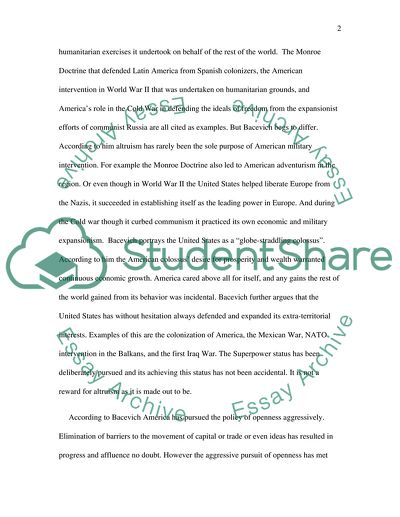Cite this document
(American Empire by Andrew J. Bacevich Book Report/Review, n.d.)
American Empire by Andrew J. Bacevich Book Report/Review. Retrieved from https://studentshare.org/literature/1726250-foreign-policy
American Empire by Andrew J. Bacevich Book Report/Review. Retrieved from https://studentshare.org/literature/1726250-foreign-policy
(American Empire by Andrew J. Bacevich Book Report/Review)
American Empire by Andrew J. Bacevich Book Report/Review. https://studentshare.org/literature/1726250-foreign-policy.
American Empire by Andrew J. Bacevich Book Report/Review. https://studentshare.org/literature/1726250-foreign-policy.
“American Empire by Andrew J. Bacevich Book Report/Review”, n.d. https://studentshare.org/literature/1726250-foreign-policy.


